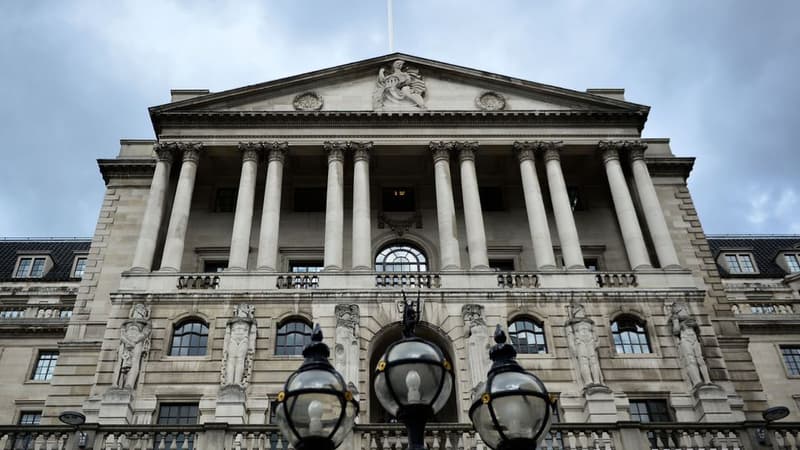The Bank of England on Thursday announced a 0.50 percentage point rise in its benchmark rate, a sharp increase but less than expected by some analysts, as the British economy is expected to contract between July and September for the second consecutive quarter. .
The Monetary Policy Committee (MPC) was divided: of nine members, “five voted for an increase of 0.50 points” to 2.25%, explains the BoE in a press release, also estimating that British inflation will experience a peak in October of just under 11%, against the 13% expected so far.
This Wednesday, the US central bank (Fed) announced on Wednesday fifth consecutive rise in its reference ratesraising them again three quarters of a percentage point to place them between 3% and 3.25%, and plans to continue with this movement in the face of inflation, which remains very high.
A general rate hike
While the BoE had started its rate hikes in late 2021, earlier than most other major central banks, in September it acted less quickly than the European Central Bank (ECB) and the US Federal Reserve ( Fed), which announced an adjustment of 0.75. points.
The split of the MPC in the UK reflects the hesitation of central bankers around the world, who are struggling to fight inflation, caused in particular by the rise in energy prices since the start of the war in Ukraine, but they also fear weighing down the struggling world economy with their monetary twist.
In the last 24 hours, in addition to the Fed, the Swiss Central Bank raised its rates by 0.75 points, while the Bank of Norway, like the BoE, was content with a 0.5 point hike.
The Japanese Monetary Institute, for its part, maintained its ultra-loose monetary policy, despite the fact that the government announced that it would intervene in the foreign exchange market to support the yen.
political uncertainty
In the UK, uncertainty is particularly high due to expected budget announcements on Friday from the new government of Conservative Prime Minister Liz Truss, delayed by Elizabeth II’s funeral.
The downward revision by the Bank of England of the peak of inflation is due to the plan to freeze the price of energy foreseen within the framework of this “mini-budget”.
For now, after the peak in October, “the rise in energy prices should keep inflation above 10% for the next few months” before retreating, anticipates the BoE.
british recession
MPC members who favored a steeper hike and would have liked the BoE to follow the Fed and Swiss National Bank with a 0.75 point hike admit that the energy price cap will moderate inflation in the short term and help households, but risks boosting demand and consumer spending and thus raising prices in the long term.
But the rate hike is also weighing on the UK economy as the BoE hints that the UK has already entered a recession: “Bank staff now expect a 0.1% contraction in GDP in the third quarter, a second consecutive quarter of decline”. This is the generally accepted definition of a technical recession.
By raising rates as the government tries to revive the economy, the BoE could aggravate its dispute with the executive.
During her campaign to succeed Boris Johnson, Liz Truss harshly criticized the BoE, accusing it of not acting quickly enough and promising to review its status.
The pound reacted little to the BoE announcement: around 11:15 GMT (14:15 in Paris), after a brief drop, it held up against the dollar, gaining 0.33% to $1.1317 and erasing however their earnings against the euro. (+0.04% to 87.25 pence per euro).
Source: BFM TV


